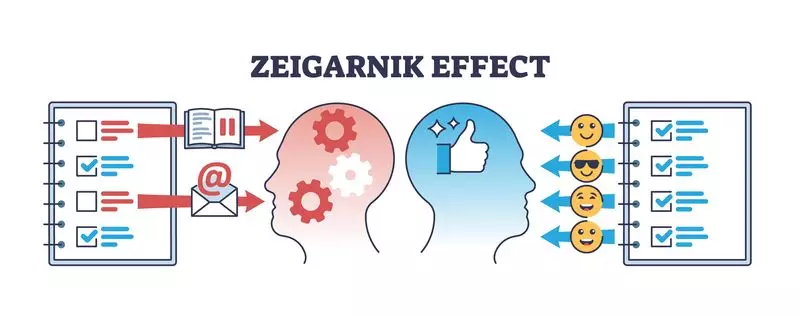
Have you ever noticed how unfinished tasks seem to linger in your mind, creating mental clutter that affects your concentration? This isn't just random distraction—it's a powerful psychological phenomenon known as the Zeigarnik Effect, and understanding it could revolutionize your approach to work and productivity.
The Restaurant Discovery That Changed Psychology
In the 1920s, Russian psychologist Bluma Zeigarnik made a fascinating observation while watching waiters in a Vienna restaurant. She noticed that servers could remember complex orders perfectly—but only until the bill was paid. Once the transaction was complete, the details vanished from their memory as if erased.
This led to groundbreaking research revealing that our brains naturally hold onto incomplete tasks, creating psychological tension that keeps them at the forefront of our awareness. The moment we complete these tasks, our minds finally release them, making space for new information.
Why Your Brain Can't Let Go
The Zeigarnik Effect works because our minds crave closure. When we start a task without finishing it, our brain maintains an elevated level of cognitive tension. This mental state serves an important evolutionary purpose—it ensures we remember what needs to be done to survive and thrive.
This psychological mechanism explains why:
- Unanswered emails haunt you throughout the day
- Half-finished projects disrupt your sleep
- Interrupted work sessions leave you feeling unsettled
- Cliffhangers in books and shows keep you engaged
Transforming Mental Burden into Productivity Power
Rather than fighting this natural tendency, smart individuals and organizations are learning to work with it. The key lies in strategically managing task completion to maintain optimal mental focus.
Practical Applications for Daily Life
For students: Breaking study sessions into smaller, completable chunks can improve retention and reduce exam anxiety. The satisfaction of finishing each segment creates positive reinforcement for continued learning.
For professionals: Ending workdays with clear next steps for tomorrow's tasks leverages the Zeigarnik Effect to maintain momentum. Your brain will naturally work on solutions overnight, often leading to breakthroughs the next morning.
For creative work: Stopping in the middle of a productive flow state—when you know exactly what comes next—ensures you can easily pick up where you left off, overcoming the dreaded blank page syndrome.
The Dark Side: When Unfinished Tasks Overwhelm
While the Zeigarnik Effect can be harnessed for good, uncontrolled mental clutter from too many unfinished tasks can lead to stress, anxiety, and decreased overall performance. The modern workplace, with its constant interruptions and competing priorities, often exacerbates this problem.
The solution isn't completing everything at once—that's impossible. Instead, effective task management involves capturing all outstanding items in a trusted system, allowing your brain to release the cognitive burden while ensuring nothing gets forgotten.
Mastering Your Mental Symphony
The unfinished symphony of our minds doesn't have to create discord. By understanding and strategically applying the principles behind the Zeigarnik Effect, we can transform mental tension into productive energy, turning what feels like a psychological burden into our greatest focus advantage.
Whether you're studying for exams, managing complex projects, or simply trying to clear your mental clutter, recognizing how your brain naturally operates provides the key to working smarter, not harder. The next time you find yourself distracted by unfinished business, remember—it's not a flaw in your system, but a feature of your magnificent mind waiting to be optimized.





